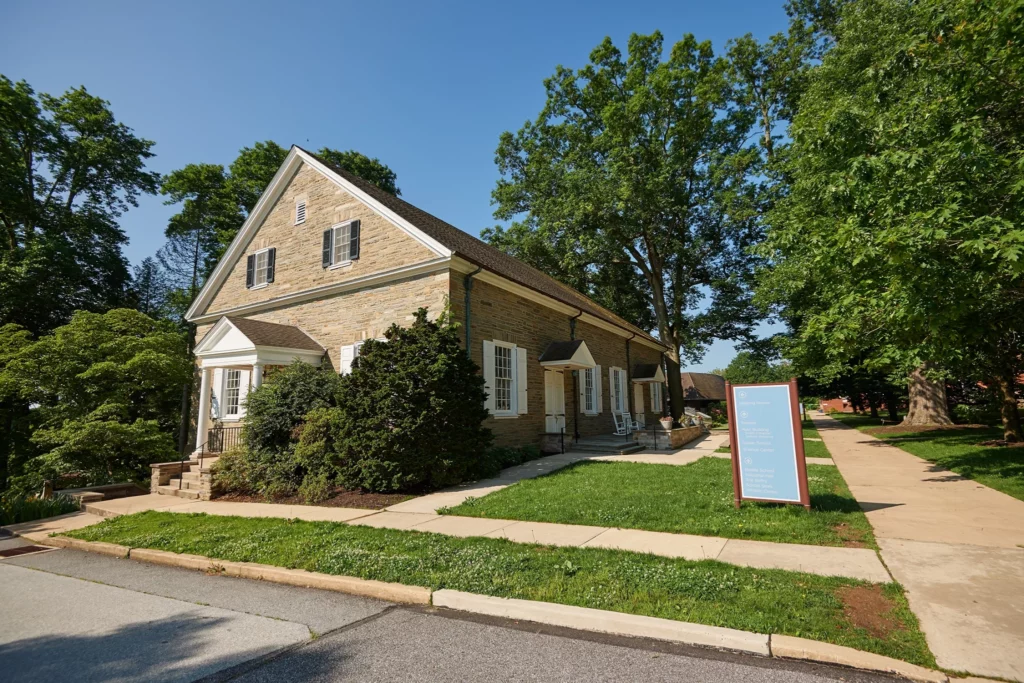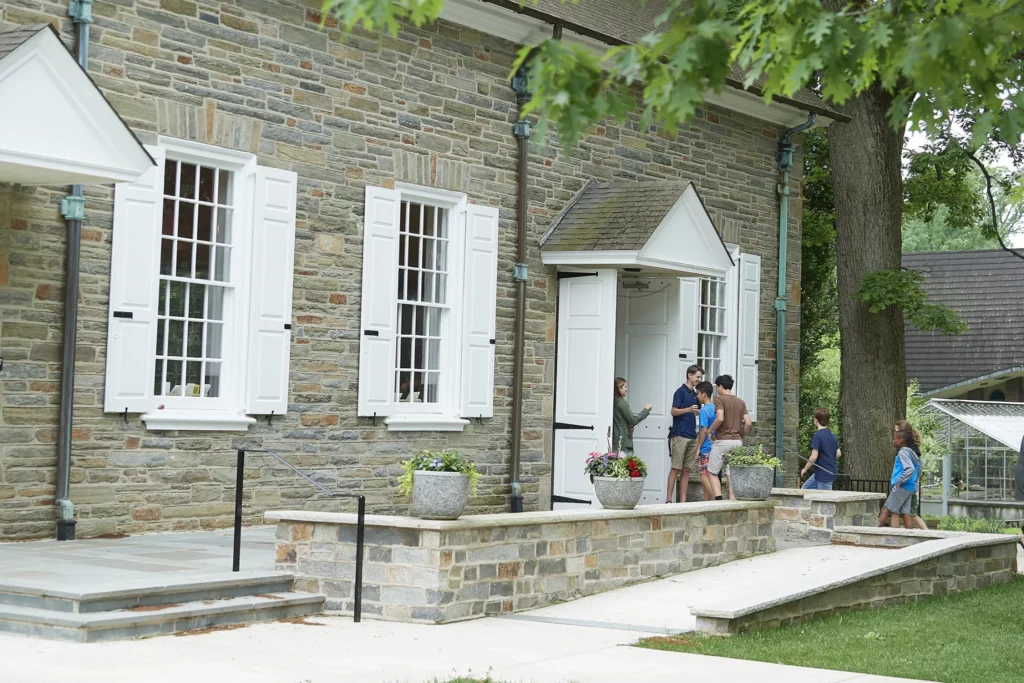- About
- Why ‘Town
- Admission
- Lower School
- Middle School
- Upper School
- Summer Programs
- Academic Calendar
- Athletics
- Arts
- MyWesttown
- Photos
- Support Westtown
- Alums
Quakers have long considered education to be a spiritual endeavor. Westtown School, founded by the Religious Society of Friends in 1799, continues to act on this belief. In providing students with a well-rounded education, from math to social studies to dance, we emphasize that Truth may come from any corner of the room, and that the unique qualities of each child are an expression of the Inner Light, which is the spark of divinity that resides in each of us. We believe that spiritual engagement is critical to each student’s journey towards success and fulfillment, meaningful relationships with others, and a positive impact on the world. The expression Purpose, Illuminated reflects our understanding that the quest for purpose in life is advanced by recognition of the Inner Light.


These ideals are central to the mission and vision of the school and are evident in how we design academic, social, and residential curricula, how we make decisions, and in how we relate to and nurture our students. Students are called upon to discover their own voices and interests. Because we are guided by Quaker principles, we are committed to education that focuses on:
While Quaker values are inherent in all we do, we do not proselytize. We do not seek to convert others to the religion of Quakers — also known as the Society of Friends. So how are Quaker values at the core of Westtown’s educational program in a way that speaks to all students and teachers while honoring each individual’s own faith traditions? Here are some of the ways:
Weekly Quaker Meeting for Worship is required. “Meeting,” as it is often known, is a deceptively simple experience. Community members enter the Meeting House — a building with no religious symbols or decoration — in silence. As people settle into quiet reflection, they discover an oasis away from the noise and motion of life. There is no pastor or sermon, as Quakers believe that individuals do not need an intermediary between themselves and the Divine, and that all have access to God and to Truth. Sometimes a person gains insight from the shared silence and is moved to communicate it with the group by rising and speaking. It is through this silence, even because of it, that those of any faith can worship in this setting.
Quakers believe there is that of God within every person. This is demonstrated in Westtown classrooms as teachers nurture the best in each child, and children accept and respect one another. Students feel seen and heard, their gifts and talents fostered. Because of the basic premise that the inner light exists in us all, everyone’s contributions are both valued and expected.
Our graduates come away with the sense that their education has been a shared endeavor among themselves, their peers, and their teachers. In discussion-based, seminar-style classes, Westtown students encounter open-mindedness and the space to exercise critical thinking skills.
Quaker education at Westtown means students are empowered to agents of change. Students’ worldviews are expanded by deep explorations of a multiplicity of voices in history, literature, religion, and art. They consider issues of peace and war, racism, injustice and law, violence and nonviolence, ethics, and the environment. They are challenged to see their own place in these issues and in the world. They are encouraged to use their talents and enthusiasm to seek solutions for a just and compassionate future. Our students develop a strong sense of social justice and the courage to act with confidence, conscience, and conviction.
The Quaker belief of the “Inner Light” or that of God in each of us creates an atmosphere of acceptance and openness. Students are led by example not only to respect the identities, perspectives, and talents of others in the community but also to learn from them. Westtown is culturally, religiously, racially, ethnically, and socio-economically diverse and we are deeply enriched by this diversity.
When asked about Westtown’s greatest strengths, young alums often talk about the quality of the academic program and a profound sense of community. Being a responsible and active member of one’s community is fostered even from the youngest grades. Service learning and volunteerism, the Work Program, and a curricular focus on respect for others, personal responsibility, and community throughout the divisions engenders a sense of responsibility toward – and belonging to – both the school community and the global community. Our boarding program sets Westtown apart as it challenges students to live, learn, and work together within a richly diverse residential setting.